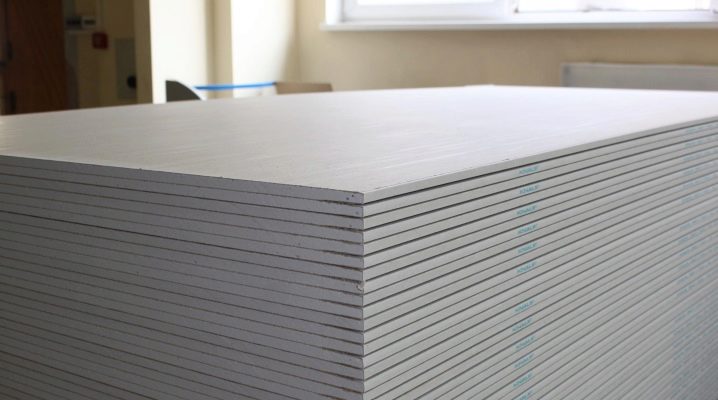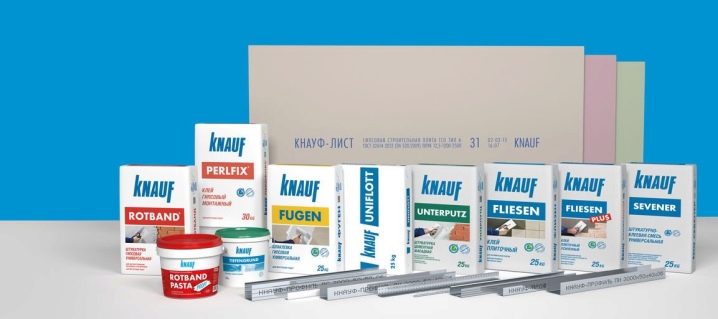Dimensions of sheet GVL

GVL sheets are deservedly considered one of the best materials used in construction as an alternative to gypsum board. They have many positive characteristics that make them an irreplaceable material for decoration. Although this is a fairly new material on the Russian market, it has already managed to recommend itself from the positive sides. Its versatility and reliability were appreciated by builders and consumers at its true worth, and now GVL is used everywhere.


GVL characteristics
Gypsum fiber boards are made by combining gypsum and fibers from cellulose obtained from processed waste paper. The shape of the sheet is obtained by using a press. Under high pressure, the components are compressed and turned into a sheet of gypsum fiber. Although drywall is somewhat analogous to gypsum fiber, sheets of gypsum fiber board are much more durable and reliable and outrun drywall in many respects. These plates are used when it is necessary to carry out work on the construction of solid partitions.

Gypsum fiber boards can be divided into two main types: standard (GVL) and moisture resistant (GVLV). You can also select slabs with an edge in the form of a longitudinal straight line (designated as PC) and a rebated edge (marked as FC). Sheets without an edge are marked under the letter K. Sheets with a straight edge (PC) are used when sheathing of frame structures is necessary, that is, for walls and ceilings. It is worth considering that reinforcement must be used for the joints of such plates. Sheets with a folded edge (FK) are two glued sheets that are axially offset relative to each other by about 30-50 millimeters.

The main advantages of GVL
- Such material is environmentally friendly, because it contains only cellulose and gypsum. For this reason, gypsum fiber does not emit any harmful substances and is absolutely harmless to humans.
- GVL sheets are very resistant to temperature changes, so they can be used even in a cold room.


- Such material is an excellent sound insulator. Often, using GVL, special screens are made to reflect extraneous noise.
- Gypsum fiber tolerates moisture very well, so it can be used even when decorating a bathroom or kitchen.
- The material is highly resistant to fire, which reduces the likelihood of a fire.
- Gypsum fiber can be cut to fit any size. Such material does not crumble, and, if necessary, you can safely drive nails or screw in screws into it.
- GVL is also a good insulation, as it has low thermal conductivity. Gypsum fiber boards are able to keep heat in the room for a long time.


Standard sizes
GOST provides for various sizes of GVL boards in length, width and thickness. In particular, the following sizes are provided in terms of thickness: 5, 10, 12.5, 18 and 20 mm. The dimensions are 500, 1000 and 1200 mm in width. The length of the GVL is represented by the following standards: 1500, 2000, 2500, 2700 and 3000 mm.
Sometimes slabs are produced in non-standard sizes., for example, 1200x600x12 or 1200x600x20 mm. If you need to purchase a significant amount of non-standard products, it is sometimes easier to order them directly from the manufacturer than to find them ready-made in a store.

The weight
The only drawback of GVL is that it is a rather heavy material, especially when compared to its related drywall. For example, a slab with dimensions of 10 x 1200 x 2500 mm weighs approximately 36-37 kg. Therefore, when installing GVL, rather strong profiles are needed, not to mention really strong male hands. Fastening such slabs to walls requires a strong frame. Sometimes wood bars are used instead.


Small slabs can be fixed to walls without the help of a frame. Their installation can be carried out using special glue.

GVL cutting
Sometimes during construction it is necessary to cut a sheet of gypsum fiber board. You can even use a regular knife to cut gypsum fiber boards.
The procedure is as follows:
- It is necessary to attach a flat rail to the GVL sheet, along which it is worth making the markings.
- Draw a knife along the markings several times (5-6 times).
- Next, the rail fits under the notch. After that, the plate must be gently broken.
For inexperienced builders, the best way out when cutting a sheet of gypsum fiber board is a jigsaw. Only this tool is able to provide an even and clear cut of the slab.



Laying GVL on the floor
Before installing GVL sheets on the floor, you must carefully prepare the base. The old coating must be removed, and all debris must be removed. Even contamination deserves special attention, which, ideally, should not be - they do not promote adhesion. Irregularities and defects must be eliminated with a cement solution from which the screed is made. Then a layer of waterproofing is laid on the floor. If necessary, resort to adding expanded clay, this is done for additional thermal insulation of the floor. After the above steps, you can proceed directly to laying gypsum fiber sheets.
This is done as follows:
- First, it is worth gluing the damper tape.


- Next, the sheets themselves are laid on the floor. Their fastening is carried out by using glue or self-tapping screws. It is important to remember that self-tapping screws should be screwed in, observing a certain distance between them (about 35-40 cm is recommended). The new row is laid with a seam shift of at least 20 cm.
- At the final stage, it is necessary to carefully process all the joints between the sheets. This can be done with leftover glue, but it is better to use a putty. Then any coating can be laid on the gypsum fiber sheets.

GVL for walls
In this case, there are two ways to mount sheets to the wall.
Frameless way
With this method, sheets of gypsum fiber board are attached to the walls using special glue. The type of glue and the amount will depend on the unevenness in the walls. If the defects on the wall are small, plaster glue is applied to the sheets and pressed to the surface. If the irregularities on the wall are significant, then it is worth applying special durable glue around the perimeter of the sheet, and then in the middle, pointwise every 30 cm.If in the future it is planned to hang any cargo in the form of shelves or hangers on the GVL, it is necessary to grease the entire surface of the sheet with glue for greater reliability.


Wireframe method
For this method, you first need to make an iron frame that can withstand a heavy load. Also, additional insulation or sound insulation can be placed under the frame, and electrical wiring and other communications can also be hidden there. The GVL sheets themselves must be fixed to the frame using special self-tapping screws with a double-row thread.


The main mistakes during the installation of GVL
There are some subtleties to consider when working with gypsum fiber sheets.
To avoid the most common mistakes, follow these tips:
- before applying the putty, it is not necessary to remove the chamfer;
- for fastening sheets to the base, there are special screws with a double thread, which must be used;
- at the joints of the sheets, it is important to leave gaps that are equal to half the thickness of the slab;
- such gaps are filled with plaster putty or special glue;
- before installing the GVL, it is important to prepare the walls, that is, to align them, remove irregularities, and make a primer.

What to consider when choosing
When purchasing sheets of GVL, you should pay utmost attention to the manufacturer. Sheets of the Knauf company, which has long established itself in the building materials market, have very good quality. Analogues of domestic manufacturers, although they will cost less, but their quality is noticeably inferior to the German one. When buying moisture resistant sheets, you need to carefully read the product labeling. Such moisture-resistant sheets may not differ in appearance from standard ones, so it is important to read what is written on the package.
When choosing any building materials, cost should be the last argument. in favor of choosing a particular product. Good moisture-resistant Knauf sheets, depending on the size, can cost up to 600 rubles apiece, but it is better not to be greedy, since the miser pays twice.

Conclusion
GVL sheets are very high quality and easy-to-process material. Their weight is quite significant, which puts a lot of stress on the walls of the room, however, the advantages are numerous. You can carry out the installation of GVL with your own hands. Also, the material is very resistant to temperature changes, and even to high frosts. Most sheets are able to withstand up to 8-15 freezing cycles and not lose their properties. Such material is indispensable for finishing various surfaces, it is guaranteed to meet all expectations and will delight you with a long service life.

All about the properties of GVL sheets, see the video below.













The comment was sent successfully.